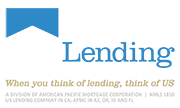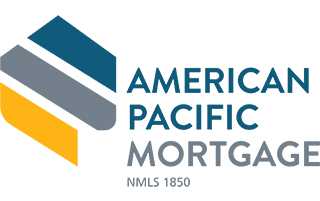Refinance Rental Property: Understanding How It Works
 Rental properties can be an excellent investment; however, if you do own a rental property, you know that keeping your overhead low is important to maximize your return on investment. In fact, if you’re not careful, the costs of owning and maintaining a rental property could end up exceeding the potential profit. Avoiding this disaster and saving money wherever you can is why you might want to consider refinancing your rental property mortgage at some point in time.
Rental properties can be an excellent investment; however, if you do own a rental property, you know that keeping your overhead low is important to maximize your return on investment. In fact, if you’re not careful, the costs of owning and maintaining a rental property could end up exceeding the potential profit. Avoiding this disaster and saving money wherever you can is why you might want to consider refinancing your rental property mortgage at some point in time.
Of course, not all investors refinance their rental properties to help lower overhead costs. Some investors will do a cash-out refinance, that can be used towards renovating their rental property or even to invest in a new rental property. Either way, the following will guide you through everything you’ll need to know about refinancing a rental property.
Differences Between Primary Home and Rental Home Refinance
Refinancing is a great way to take advantage of more favorable loan terms; for example, maybe you want to switch from an adjustable-rate to a fixed-rate because the current market interest rates are low.
However, there are some differences between getting your primary residence refinanced and getting a rental home refinanced. Lenders know that the borrower won’t want to lose their primary residence and will do everything they can to avoid defaulting. However, there’s a bigger risk for lenders when it comes to borrowers refinancing rental properties. If they fall into financial hardship (which can occur if they aren’t able to rent out their investment property), they will pay their primary home’s mortgage first before they pay the mortgage on their rental property. There’s a greater chance that they will default on their rental property.
All this means that the rates and terms for a rental property refinance are less favorable than those on a primary residence, and also that the qualification standards are much stricter. Many lenders will require that the rental property owner provide a number of documents in addition to meeting the typical refinancing requirements. These documents may include:
- Proof that your rental property has tenants in the form of a lease and proof of rent deposit.
- Homeowner’s insurance and homeowner’s association insurance documentation.
- Proof of a stable income and financial situation in the form of your two most recent pay stubs and two most recent bank statements.
- Your tax returns from the previous two years.
- Any recent investment and retirement account statements that you may have.
- Documentation that verifies what the payments on your property are and the breakdown of principal, interest, tax, and insurance.
- You may also need to provide paperwork documenting your other debts and obligations.
Some lenders may even require that borrowers have at least six months’ worth of mortgage payments in their bank account in the event that they lost their tenant for an extended period of time.
Typical Rates And Terms
When comparing a residential property refinance and an investment property refinance, don’t be surprised if the rates and terms vary a bit, even if you have a stellar credit history. Here is a brief breakdown of the rates and terms you can expect, although they vary based on the lender and their requirements (and your financial situation).
Rates
Before you begin, always make sure that the interest rate is lower than that of your initial loan. Just keep in mind that even if it is, it will still be more than the interest rate on a residential refinance. The general rule of thumb is to assume that the interest rate on an investment property refinance will be around 0.5 percent more than that on a residential property refinance. Like conventional loans, interest rates will vary based on how long the loan term is as well as other factors, such as your credit score.
Terms
For a typical investment property refinance, the terms won’t be too much different than a residential property refinance, although they will be more limited. You’ll be able to choose from 15 and 30-year refinancing terms. You’ll need to wait at least six months after you’ve taken out the initial mortgage if you’re attempting to obtain a cash-out refinance.
What Other Fees and Costs are Associated?
You will need to get your property appraised so that the lender can determine the loan-to-value ratio, an important factor in determining your eligibility as well as your rates. In addition to paying for the appraisal, you will also have to pay for closing costs, which include origination fees, local filing fees, and more. Expect the closing costs to be roughly the same as the closing costs on your initial mortgage.
Typical Refinance Qualifications
Factors that lenders will look at to determine if you are eligible for a rental property refinance loan include these:
Credit Score
Credit score requirements are relatively strict due to the inherent risk of lending to rental property owners. The very minimum credit score that’s acceptable is 660–and that’s only for limited cash-out refinances on one-unit rental properties. Depending on a variety of factors, lenders may require minimum credit scores of 680 to 720.
Property Ownership
You must prove that you are the owner of the rental property in question. This means that it can’t be in the name of an LLC or a corporation. If it is, then you will need to remove the property from the LLC or corporation and put it into your own name in order to be eligible for refinancing.
Rental History
Lenders will not approve of a refinancing loan based solely on the potential of rental income. You need to prove that the property was successfully rented out in order to qualify.
Debt to Income Ratio
The maximum debt-to-income ratio for conventional loans on residential properties is 43 percent. Basically, all of your debts and financial obligations (including mortgage payments on personal property) must be less than 45 percent of your gross income. This does vary from lender to lender as well as on other factors (such as the amount of cash reserves you have and your credit score).
Loan to Value (LTV)
The LTV refers to the amount of the loan compared to the value of the property. Lenders will require a minimum LTV of 75 percent to be eligible for a residential property refinance, which means that you will have to have at least 25 percent equity in the property. The lower your LTV is, the easier it will be to qualify (and the better your rates will end up being).
Scenarios In Which Refinancing May Be Needed
Take a look at a few of the common scenarios in which an investor might want to refinance their rental property:
- Lower interest rates – If you had a variable rate on your initial mortgage or the fixed-rate was much higher than it is currently, refinancing can help to reduce your interest rate, thereby saving a significant chunk of money over the long-term.
- Lower mortgage payments – If your mortgage payments are high, you could refinance to a loan at a longer length. For example, you could refinance from a 15-year loan to a 30-year loan, which will greatly reduce how much you owe every month, although you will end up paying more in interest over the long term. However, this is often a good option for long-term investors who need to save money over the short-term.
- Perform repairs – Repairs can be expensive but as the owner of a rental property, you’re responsible for paying for them. A cash-out refinance can provide you with the extra money you need to make the necessary repairs.
- Make home improvements – Some investors will take out cash-out refinance loans so that they can pay for renovations or remodeling work. Such home improvements are often seen as an investment since they could allow the owner to raise the price of rent.
- Buy another investment property – A cash-out refinance can also provide you with the extra money you need to make a down payment on another residential property, thereby adding to your investment portfolio.
Choosing the Right Lender
You have many lenders to choose from for a refinance loan on your rental property. It’s usually recommended that you go to the lender of your current rental property mortgage first since you have an existing relationship with them and they may give you more favorable terms in return for staying with them. However, you should be sure to compare terms with other lenders before you make a decision. In some cases, your current lender may even be willing to match more favorable terms that you get elsewhere just to maintain the relationship they have with you. Some of the different lenders you could go to include local banks, credit unions, and online lenders. There are certain Federal programs that you should look into as well, including Fannie Mae, Freddie Mac, and HARP (Home Affordable Refinance Program).
Always make sure that you look into the reputation of the lender. It’s worth mentioning that the best terms don’t always make for the best option. For example, a lender offering a slightly higher interest rate may be more flexible and willing to work with you in the future. Look for someone that is communicative and respectful. You want to be able to get along with them, after all.
Questions To Ask When You Choose Your Lender
When comparing lenders, speak to a representative over the phone or in person. Don’t just look at their rates online. You’ll want to get an idea of who you’ll be talking to and ask a few questions. The following are a few questions that can be very helpful in determining if the lender is right for you
Do You Refinance Investment Properties?
The first question you should ask is whether the lender even offers to refinance loans for investment properties. Some lenders may consider it too big of a risk, especially in certain states where the housing market may not be very strong.
How Long Do I Need To Have Been The Property’s Owner?
If you’re currently paying a mortgage on the investment property, you will need to have been the owner of the property for at least six months. However, you may be able to qualify for a refinance loan sooner if you inherited the property.
Does The Property Have To Be Rented For A Specific Length Of Time?
Lenders won’t refinance a rental property that nobody’s renting. It’s simply too big of a risk. It’s why they will require proof that you are renting the property out. In some cases, lenders will want to see that the property has been rented out for a particular length of time–often six months–to ensure that you have stable tenants.
What’s The Minimum Credit Score?
If your credit score isn’t in perfect shape, you’ll want to know what the minimum credit score is. If your score doesn’t meet their minimum, ask them if they can be flexible if the borrower can show other factors of creditworthiness, such as low debt.
What’s The Interest Rate?
Ask what the interest rate will be based on your credit score. Find out how low the interest rate can go based on credit scores–you might want to consider waiting and improving your score if you can save significantly on the interest rate as a result.
What Are The Terms You Offer?
Find out about down payment requirements and term length options. If the lender only offers 15-year terms and you’re looking to lower your monthly payments, they may not be the lender for you.
How Long Does It Take To Close On The Loan?
This can be an important factor in your decision to choose a lender if you need to make repairs soon, or if you’re taking out a cash-out refinance loan so that you can invest in a new rental property. If it takes too long, that rental property you want to purchase may be bought by another investor. Typically speaking, it shouldn’t take more than 30 to 45 days.
What Are Your Fees?
Add up the costs of all of the fees involved, including appraisal fees, loan application fees, and closing fees. This will give you an idea of what the upfront costs of the loan will be and whether you can afford it.
Make Sure That Refinancing Is Right For You
If you need a cash-back loan to pay for repair work, then you may have to refinance. However, if you’re considering refinancing for home improvements, additional investments, or to lower your costs, it’s important to do the math. For example, if you’ve almost paid off the initial loan on your investment property and you’re thinking about refinancing so that you can take advantage of the lower interest rates, consider how much the closing costs will be. If the closing costs are high, they could negate what you would have saved on interest for the remainder of your loan term. Always calculate the short-term and long-term costs vs savings and potential profit before applying for a rental property refinance loan.
Contact Us
If you would like more information on rental property or investment property contact us here or call (530) 244-6830 and we would be more than happy to help!
The views, articles, postings, and other information listed on this website are personal and do not necessarily represent the opinion or the position of American Pacific Mortgage Corporation or US Lending Company.
* For loan examples and more information visit our disclosure page at https://www.uslendingcompany.com/disclosures/





